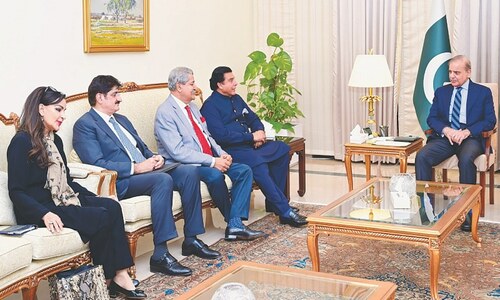KATHMANDU, Feb 1: Nepal's King Gyanendra sacked the government, declared a state of emergency and assumed power on Tuesday, saying the leadership had failed to hold polls or restore peace amid an escalating civil war with Maoist rebels.
The king took power for the next three years, and placed many politicians under house arrest. "I have decided to dissolve the government because it has failed to make necessary arrangements to hold elections by April and promote democracy, the sovereignty of the people and life and property," the king said in an address on state radio.
He said a new government would be formed under his leadership to "restore peace and effective democracy in this country within the next three years". Shortly afterwards, a state of emergency was declared.
Fixed and mobile phone networks in what is one of the world's poorest nations were apparently shut down and communications links with the rest of the world disrupted. International flights were turned back from Kathmandu airport, and Nepali news Web sites went down, although road links with India remained open.
The airport was opened late on Tuesday and a state-run Royal Nepal Airlines flight arrived in the Indian capital. It was not known when other flights would resume. "There was lot of security on the streets and vehicles were being stopped and checked," an Indian arriving on the flight told India's NDTV.
In Kathmandu, armoured vehicles patrolled the streets and security was beefed up. But Matthew Kahane, UN resident coordinator in Nepal, said the situation seemed calm.
INDIA WORRIED: The strategic Himalayan nation, sandwiched between India and China, is locked in a bitter three-way struggle between the king, the rebels and bitterly divided political parties.
Sacked Prime Minister Sher Bahadur Deuba was Nepal's 13th premier in its 14 turbulent years as a constitutional monarchy. Nepal has had no parliament since 2002. -Reuters













































Dear visitor, the comments section is undergoing an overhaul and will return soon.